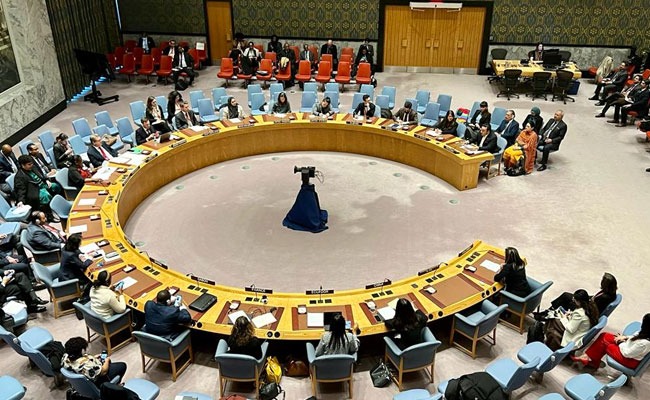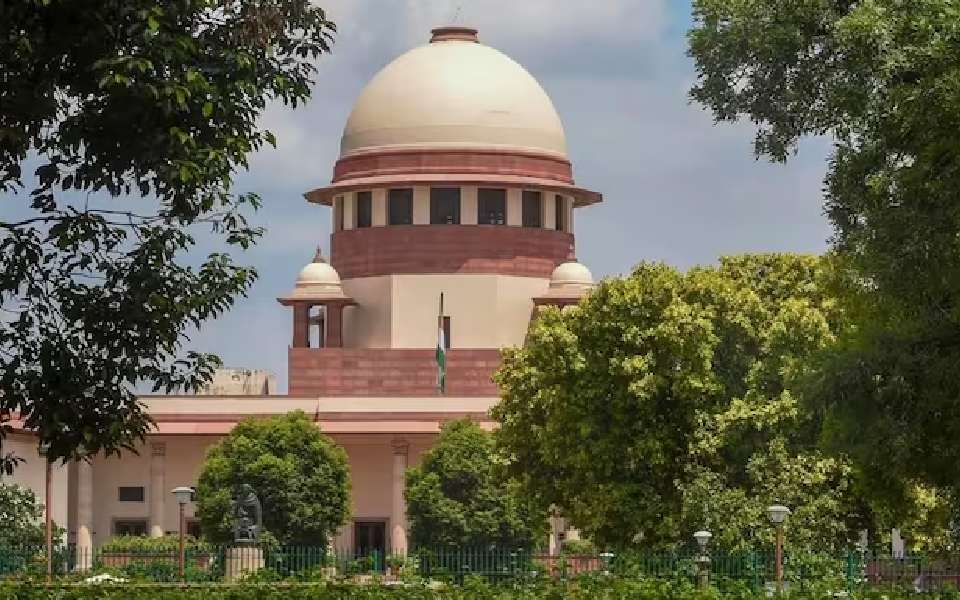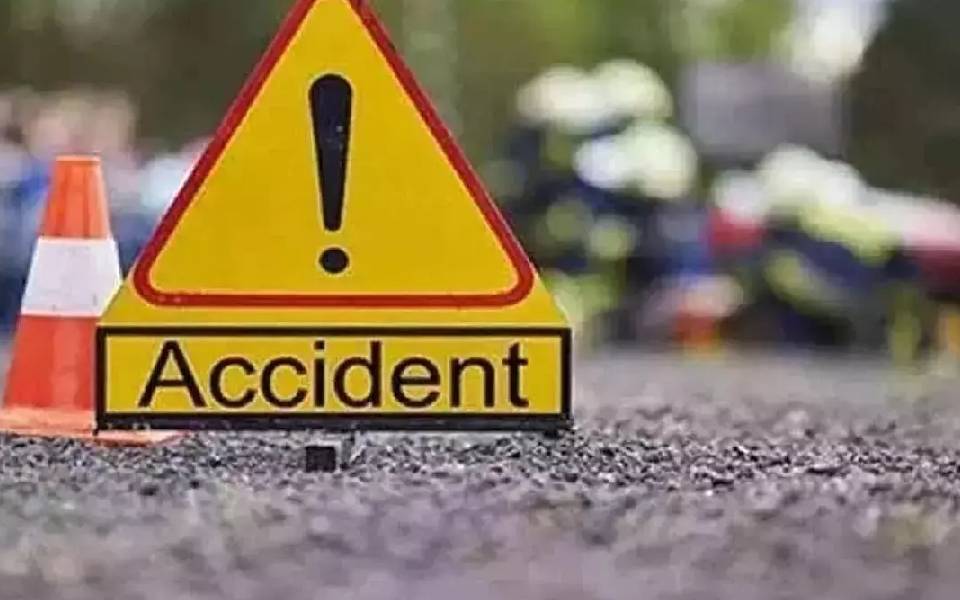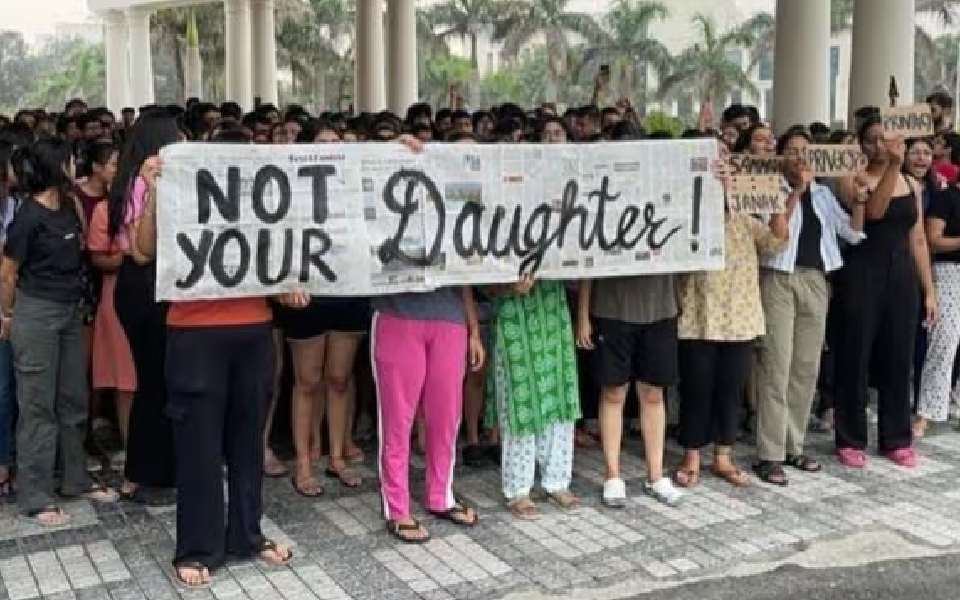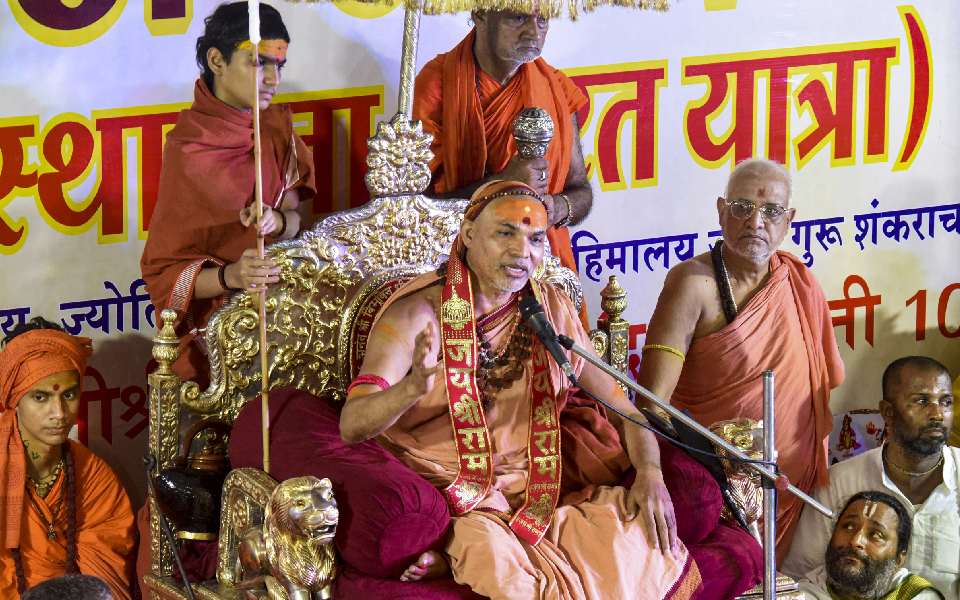United Nations (PTI): India has told the UN Security Council that violence perpetrated by terrorists against women and girls remains rampant and should be strongly condemned while calling for the adoption of a zero-tolerance approach to all forms of terrorism.
India's Permanent Representative to the UN Ambassador Ruchira Kamboj said on Tuesday that Member States must provide a conducive environment for the participation and inclusion of women in political processes and decision-making.
"Terrorism and violent extremism continue to be the biggest violators of human rights and a persistent threat to global peace and security. Needless to say, women and girls suffer invariably and disproportionately," she said.
Speaking at the UN Security Council open debate on Women, Peace and Security: Towards the 25th Anniversary of Resolution 1325', Kamboj said violence against women and girls perpetrated by terrorists remains rampant.
"This deserves the strongest condemnation and calls for the adoption of a zero-tolerance approach to all forms of terrorism," she said.
The Security Council adopted resolution 1325 on women and peace and security in October 2000.
The resolution reaffirms the important role of women in the prevention and resolution of conflicts, peace negotiations, peace-building, peacekeeping, humanitarian response and post-conflict reconstruction and stresses the importance of their equal participation and full involvement in all efforts for the maintenance and promotion of peace and security.
Addressing the debate held under Mozambique's Presidency of the Council for the month of March, Kamboj said: "To foster such an enabling environment, the principles of democracy, pluralism and the rule of law are essential prerequisites".
Referring to the situation in Afghanistan, Kamboj said India has been emphasising the importance of inclusive and representative governance in Afghanistan, with the meaningful participation of women in accordance with UNSC resolution 2593 which was adopted under India's Presidency of the Council in August 2021.
The United Nations and regional organisations must assist national authorities, upon their request, in developing capabilities to strengthen their national legal frameworks and related institutional structures for ensuring accountability and checking the impunity of those perpetrating violence against women, she said.
"Member States should also be provided support for capacity building in post-conflict situations to address meaningfully and institutionally the inequalities and violence faced by women, and to ensure their full participation in decision-making. A focus on women in peacebuilding efforts is crucial," she added.
Stressing that women police officers and peacekeepers play an indispensable role in furthering the women, peace and security agenda in post-conflict situations, Kamboj said India welcomes efforts towards a Uniformed Gender Parity Strategy leading to an increase in the deployment of women peacekeepers.
In January 2023, India, among the largest troop-contributing countries to UN peacekeeping missions, deployed a platoon of women peacekeepers in Abyei as part of the Indian Battalion in the United Nations Interim Security Force in Abyei (UNISFA), India's single largest deployment of women peacekeepers.
In 2007, India was the first country to deploy all-women Formed Police Units in Liberia. These initiatives are reflective of New Delhi's intent to increase significantly the number of women in peacekeeping contingents, Kamboj said.
India also supports increasing the deployment of Women Protection Advisors for effective monitoring, analysis and reporting arrangements on sexual violence in conflicts, she said.
Noting that over the years, even as there has been a strengthening of the normative framework of the Women Peace and Security agenda, Kamboj lamented that women are still routinely under-represented in and excluded from formal peace processes, political dialogues and peacebuilding.
The gender perspective is yet neglected in conflict prevention, recovery, and reconstruction, she said.
Kamboj said while supporting political participation, "we must also equally focus in a holistic manner on the socio-economic empowerment of women, including their access to credit, finance and technology."
She underlined that digital technologies have enormous potential to empower women by providing greater access to education, finance, credit, social services, the marketplace and employment.
Kamboj termed UNSC resolution 1325 as "path-breaking" for ushering in a gendered perspective to the maintenance of international peace and security.
"It for the first time recognised that women are disproportionately affected by violence and that their participation in the peace processes is indispensable for forging lasting peace and security," she said.
She further said that the cultural ethos of India has taught its people to regard planet earth as a mother.
"As a nation with a strong civilisational character rooted in women's empowerment and equal participation in social and economic life, we strongly believe that the progress of women is the very basis for the empowerment of a nation," she added.
Let the Truth be known. If you read VB and like VB, please be a VB Supporter and Help us deliver the Truth to one and all.
New Delhi, Sep 24: The Supreme Court on Tuesday sought responses from the 2017 Unnao rape survivor and her family members on the Centre's plea seeking withdrawal of CRPF security cover provided to them following the court's order in 2019. Expelled BJP leader Kuldeep Singh Sengar is serving a life term for kidnapping and raping the minor girl in Uttar Pradesh's Unnao area in 2017.
Taking note of the sensational rape case and the threat to lives of the survivor and others, the apex court on August 1, 2019, directed that the rape survivor, her mother, other members of the family and their lawyer be provided CRPF security.
A bench of Justices Bela M Trivedi and Satish Chandra Sharma asked that the application of the Centre to be served on the victim and her family members. The bench also observed that since there is hardly any threat perception, it would like to close the case.
The Centre's counsel said no security cover is needed according to the threat analysis of the victim and her family members.
Advocate Ruchira Goel, appearing for the Uttar Pradesh government, submitted that everything, including the trial, was transferred to Delhi after the incident following the apex court's order.
The bench asked Goel where the victim resides at present. She replied that the woman and her family stay in Delhi.
On May 14, the top court had asked the Centre to file a separate application seeking withdrawal of CRPF security cover provided to the survivor, her family members and their lawyers.
The Centre submitted that the security cover may be provided by either the Delhi or Uttar Pradesh police and the CRPF be permitted to withdraw.
In 2019, the top court transferred all five cases registered in connection with the Unnao rape incident from a Lucknow court to a court in Delhi with the direction to hold trial on daily basis and complete it within 45 days.
The Supreme Court also directed the Uttar Pradesh government to provide Rs 25 lakh as interim compensation to the rape survivor.
The court had added that the CBI will have to complete within seven days the investigation into the accident in which the survivor and her lawyer were critically injured and two of her aunts killed.
Her father was arrested at the behest of Sengar in a case under the Arms Act and died in custody on April 9, 2018.
Sengar has sought the quashing of the trial court's December 2019 judgment that has sentenced him to imprisonment for the remainder of his life. His appeal is pending in the Delhi High Court.
On March 13, 2020, Sengar was sentenced to 10 years of rigorous imprisonment in the case of death of the woman's father in custody. He was also slapped with a fine of Rs 10 lakh. The court had awarded a 10-year jail term to Sengar's brother Atul Singh Sengar and five others in the case.

